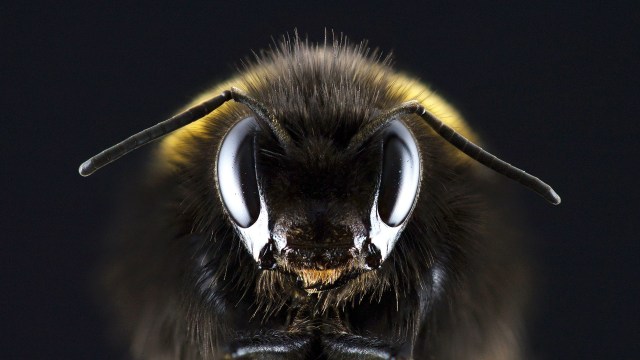The Curious Case of Bees and Total Solar Eclipses: Insights from 2017 and Beyond

In the midst of a total solar eclipse, when the world plunges into an eerie darkness, humans aren't the only ones affected. Bees, also experience a dramatic shift in behavior. The total solar eclipse of August 21, 2017, provided scientists with a unique opportunity to delve into the foraging and homing habits of honey bees (Apis mellifera) during this celestial spectacle.
Traditionally, bees are known to be industrious creatures, buzzing from flower to flower in search of nectar and pollen from dawn till dusk. However, when the moon's shadow began its dance with the sun across North America, bee behavior took an unexpected turn. Researchers, including ecologist Candace Galen from the University of Missouri, embarked on a mission to understand how these tiny insects responded to the celestial event.
Armed with microphones strategically placed among flowers, the team captured the buzz of activity as the eclipse unfolded. What they discovered was remarkable: as totality, the phase where the sun is completely obscured by the moon, descended upon the landscape, the buzz of bees abruptly ceased. It was as if a switch had been flicked, plunging the bees into a sudden silence.
This swift transition puzzled researchers. Bees, unlike humans, aren't adapted to handle the sudden onset of darkness brought on by an eclipse. As Nicole Miller-Struttmann, an evolutionary ecologist at Webster University, notes, these insects lack a strong evolutionary history to guide their behavior during such events. Instead, they rely on other environmental cues, which may leave them ill-prepared for the unique conditions of an eclipse.
While the 2017 eclipse provided valuable insights into bee behavior, questions remain unanswered. With advancements in technology and a wealth of knowledge accumulated from previous studies, scientists are gearing up for an even more comprehensive investigation.
The 2024 solar eclipse offers a chance to further unravel the intricacies of bee behavior and shed light on lingering questions. Will bees exhibit similar patterns of activity as observed in 2017, or will new insights emerge? As the countdown to April' eclipse begins, scientists and citizen scientists alike eagerly await the opportunity to witness nature's spectacle and unlock the secrets hidden within the silent wings of bees.
References:
- Waiker, P., Baral, S., Kennedy, A., Bhatia, S., Rueppell, A., Le, K., Amiri, E., Tsuruda, J., & Rueppell, O. (2019). Foraging and homing behavior of honey bees (Apis mellifera) during a total solar eclipse. Naturwissenschaften, 106(1-2), 4. https://pubmed.ncbi.nlm.nih.gov/30617515/ PubMed
- Chiu, Joanna. "Busy Bees Take a Break During Total Solar Eclipses." Smithsonian Magazine, 29 Jan. 2019, www.smithsonianmag.com







Comentarios
This is an interesting report, I'm thinking about how bird species behave in this condition
I love this article! Could you correct the first citation? It's incorrectly cited to Galen et al. https://pubmed.ncbi.nlm.nih.gov/30617515/ The link is correct though! :)
Hi,
Am currently visiting NZ and happened across this interesting piece. Just thought I would draw your attention to an earlier study I carried out using my home honeybees during a total eclipse of the sun visible from parts of the UK way back in 1999! A pdf version of this article is accessible via my Researchgate pages using my name David R Dixon and the title Bees get left out in the dark during the solar eclipse. My objective was to test out whether bees were navigating back to their hives using light or scent cues. In the event, these preliminary findings supported Von Frisch’s original discovery that honey-bees use (polarised) light to navigate, to and from the hive, something which was being challenged in the 1990s.
@megan_damico Hi Megan! This is updated, Thanks!
Agregar un comentario